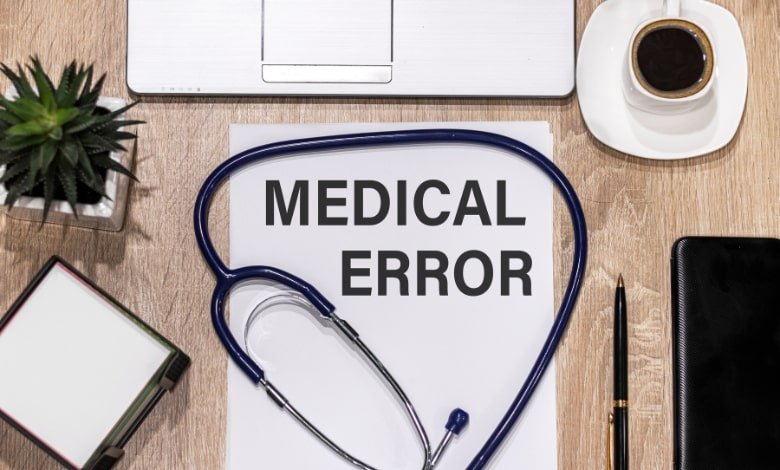Preventing Medical Errors – Eight Things you should know

Medical errors are unfortunately common in healthcare today. It is estimated that preventable medical errors are the third leading cause of death in the United States, claiming over 250,000 lives each year.
This staggering number shows just how serious the issue regarding medical errors has become.
In addition to the immense emotional toll of losing a loved one, medical errors also have a significant financial impact.
Those affected by errors often require additional treatment and hospital admission, which results in huge medical bills. More than that, when admitted to a hospital, they could lose their job due to disability or death caused by a medical mistake.
The good news is that many medical errors can be prevented by being proactive and staying safe as a patient. While the medical system needs large-scale reform to tackle this issue, there are still things individuals can do to minimize their risks.
Here are eight things you should know to help prevent becoming a victim of a medical error:
1. Do your research before choosing a doctor or hospital.
Conducting thorough research is crucial when selecting a physician or medical facility. Look at factors like years of experience, patient reviews, malpractice history, disciplinary actions, and overall reputation.
For hospitals, pay attention to safety grades, infection rates, readmission rates, mortality rates, and awards for quality of care. Additionally, be mindful of any significant legal matters, such as the Exactech lawsuit, which might relate to medical products or providers, as this could indicate potential quality or safety concerns.
To learn more about products with a history of quality and safety issues, we suggest using the Internet or speaking to professionals who have dealt with such cases.
2. Confirm medications and dosages.
Medication errors often occur due to miscommunication or gaps in verification. Always verify new prescriptions to ensure proper drug, dosage, frequency, and duration. Ask questions about possible side effects and interactions with other medicines, supplements, or foods.
You must also request written instructions and information sheets for reference at home. When picking up medications, double-check the pills against the label and your doctor’s orders and notify your doctor immediately about any concerns with a prescribed drug, including side effects or suspected inaccuracy in type or amount.
Speaking up can prevent a small error from becoming a serious safety risk.
3. Bring an advocate to appointments.
Having someone present at appointments is highly beneficial. Your friend or family member can ask for clarification if you feel unsure, overwhelmed, or concerned during an appointment.
They can ask follow-up questions you may not think of at the moment. Moreover, those facing complex conditions benefit from bringing someone along for important visits.
4. Keep good records
Maintaining thorough personal medical records is vital for patient safety. Document important details like health conditions, surgeries, hospitalizations, family history, allergies, medications, immunizations, and test results.
Keep this information well-organized and bring it to every doctor’s visit, hospital stay, or procedure. Accurate documentation prevents errors like giving medicines you’re allergic to or duplicating unnecessary tests.
Records also help providers make fully informed decisions about your care. Update your documentation regularly and notify all your healthcare providers about any changes or additions.
5. Get details about upcoming procedures.
Do not undergo any medical procedure until you fully understand what will happen and give proper informed consent. Ask for specifics about the procedure, the required preparation, risks and potential complications, and post-procedure restrictions or care.
Make sure to verify with staff the correct procedure, site on the body, and patient name. Doing your own research ahead of time is wise to know what to expect.
On the day of the procedure, speak up about any concerns or if something seems weird. Being proactive helps reduce anxiety and allows the team to prevent mistakes.
6. Speak up if something seems off.
Listen to your instincts if you feel something is not right with your care. Maybe symptoms are not improving as expected with treatment. Perhaps discharge instructions after a procedure seem vague. Or a medication causes unusual reactions. Do not ignore such concerns, and notify your provider right away.
7. Use a healthcare advocate if needed.
We strongly suggest hiring a patient advocate if you suffer from severe illnesses or complex medical circumstances. These advocates have the medical knowledge to help navigate the confusing healthcare system. They can attend appointments with you, ask questions, take notes, and clarify information.
Patient advocates can also coordinate care between facilities and providers to ensure safety. Most importantly, they are dedicated to representing your best interests and priorities to ensure you receive safe, appropriate care.
8. Ask about preventative steps.
Prevention is key when aiming to avoid medical mistakes. Ask your providers what screening tests you should have and discuss lifestyle changes to stay healthy.
For those with chronic conditions, inquire about steps to minimize complications. For example, you might be asked to avoid certain foods and supplements that interact poorly with your medications.
Prevention enables early intervention before small issues worsen. Don’t hesitate to discuss all preventative strategies with your healthcare team.
Conclusion
Medical errors cause immense harm, but many can be prevented through caution, speaking up, and taking proactive steps. Do your homework when choosing providers and facilities. Maintain thorough documentation and communicate openly with your doctors.
Bring an advocate to appointments, and don’t be afraid to ask questions. Listen to your instincts and get a second opinion if needed. While the healthcare system needs improvement, you can still take charge of your own safety.
We hope you learned something from this article; if you think we missed something, please tell us in the comments below.






